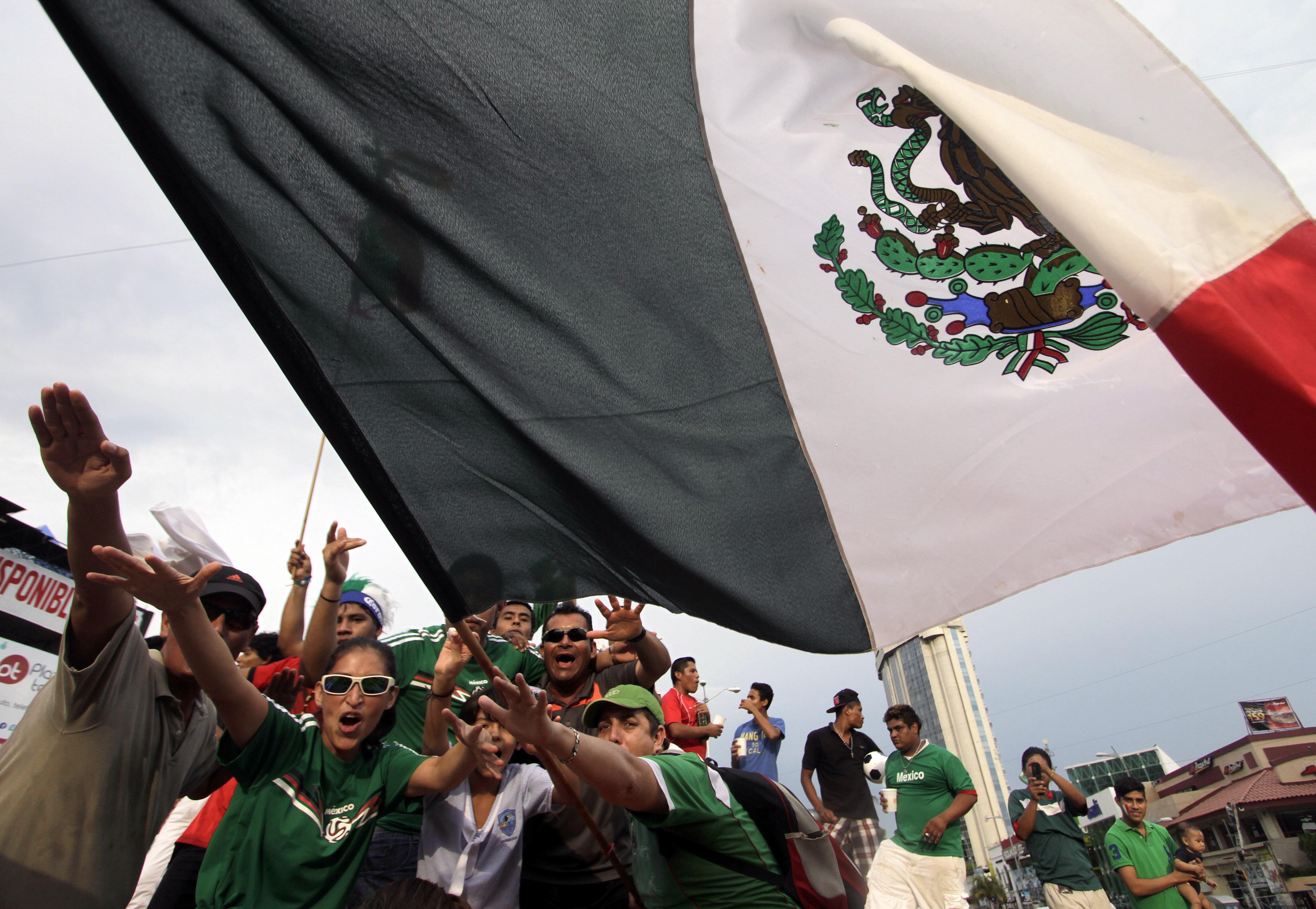If you listened closely during Mexico’s match against Croatia on Monday, you might have heard fans of El Tri shouting the Spanish word puto during goal kicks. Despite how it sounds, puto does not mean point or punt. In fact, the word is a clear, if somewhat semantically sophisticated, anti-gay slur, which is why its use by Mexican fans has been so controversial during this World Cup. Still, FIFA has cleared Mexico of improper conduct charges in the wake of official complaints, and despite promises to the contrary, ESPN did not mute the slur during its broadcast on Monday.
FIFA is undoubtedly in the wrong here, but then again, regulating chants is tricky business. Fans yell puto, which roughly means gay prostitute, at the opposing team’s goalkeeper as a tactic to distract him from his task, a common enough practice in all sports. In this case, the chant is a very specific, homophobic double-entendre, playing on the concept of letting someone “score a goal on you.” In Spanish, to score a goal is meter un gol. That translates literally as to put a goal in, so when a goalie fails at his job, he dejó que se la metieran, or allowed someone to stick it in. You see where this is going: The embarrassment of allowing a goal in your net is akin to being on the receiving end of anal sex—you know, like a gay guy.
FIFA is shrugging its shoulders here because the Mexican chant, while clearly offensive, is not an explicit faggot (or maricón in this case). I am certain that if fans were chanting that, Mexican coach Miguel Herrera couldn’t get away with saying, “FIFA should be worried about more serious things.” Apparently, faggot and gay whore are not quite the same, though the malice of their intent seems difficult to separate.
It’s also worth noting that puto is the masculine form of puta, a clear misogynistic slur. A simple solution would be to ban all forms of the p-word. But language bans are never that simple. The English equivalent for puta is also fuck, since you can conjugate it in similarly versatile ways. “It was fucking hard”: putamente difícil. “This fucking cold”: este puto frío. “He was fucked up”: estaba putiado. Forbidding puta, like forbidding fuck, is insane. I would riot for my right to use fuck in the same way I would riot for my right to conjugate puta in all its forms.
Obviously, we are not going to erase either puta or puto from common parlance. The problem here is that a gay slur is being sanctioned on the world stage by an international organization, a national soccer team, and an entire culture.
Part of me wants to believe something got lost in translation, and that if FIFA really understood and felt the insult, it might act differently. They can abstractly consider what the word means, but they don’t understand the visceral gut punch you feel when you hear a slur in your native language. The Mexican team’s officials, on the other hand, know exactly what puto means. At the very least, they could give a symbolic statement denouncing it, even if it still takes decades for the fans to catch up.
As we’ve seen with the way the NBA handled the Clippers’ Donald Sterling controversy or the growing outcry over the name of a certain Washington NFL team, sports can be a vehicle for the kinds of social conversations that lead to change. Mexico, Latin America, their sports industries, and their societies could’ve taken the puto ordeal as a moment to reckon with their homophobia. Instead, they chose to embrace the slur as part of their tradition. We shouldn’t have to depend on a FIFA ruling to know this is wrong, but it sure would have been a step in the right direction.
